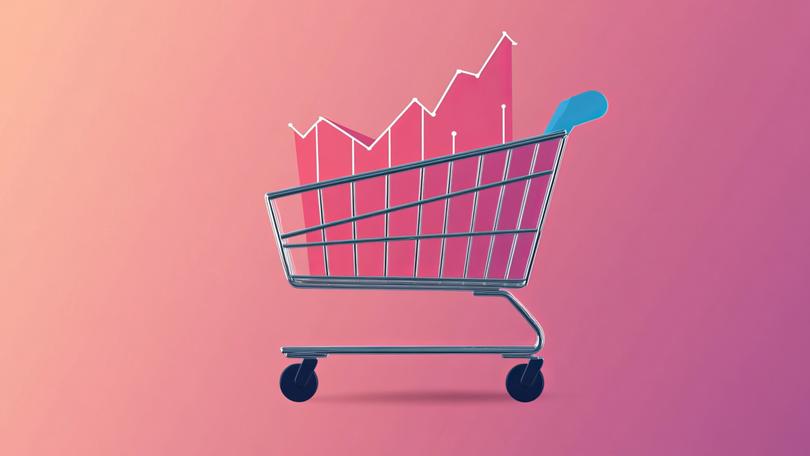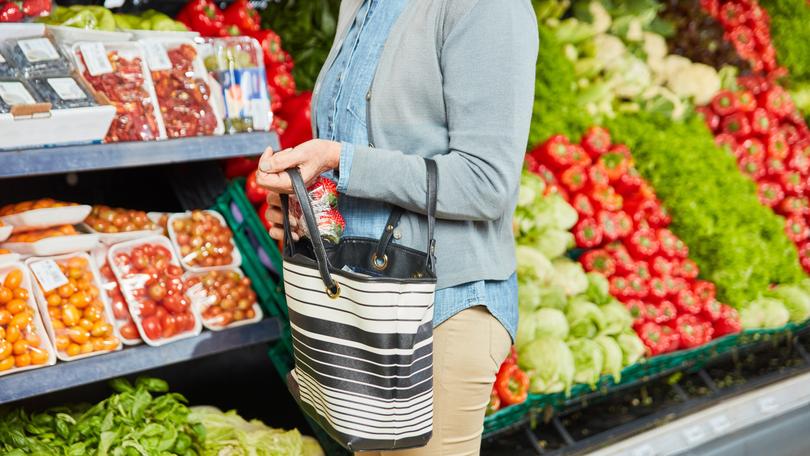JENI O’DOWD: Is pilfering a roast chook a criminal act or defiance against unconscionable corporate greed?

The price of living has become so unbearable that ordinary, middle-class Aussies — the people who always paid their way — are quietly shoplifting in our supermarkets.
No more is shoplifting associated with desperate people at rock bottom. Now, it’s lawyers, teachers, retirees, and professionals who never thought they’d steal, quietly working the system to shave dollars off their grocery bill.
A friend of mine steals a roast chicken every time she shops, slipping it into a Coles bag “so it doesn’t leak” and breezing through self-checkout without scanning it.
Sign up to The Nightly's newsletters.
Get the first look at the digital newspaper, curated daily stories and breaking headlines delivered to your inbox.
By continuing you agree to our Terms and Privacy Policy.She justifies it by saying the supermarkets rip people off, and if she’s expected to do the checkout work herself, she should at least be getting paid for it.
Another always scans the premium $4.50 mango at the cheaper $2 sale price, figuring that since the stores mark up prices whenever they like, she can do the same.
Someone else I know grabs a cold can of Coke, drinks it while shopping, and dumps the empty can before checkout — a small act of defiance against prices she says are getting out of control.
And that’s the thing. None of them see themselves as criminals. They see themselves as fighting back. Against Coles and Woolworths’ duopoly, against supermarkets that made nearly $3 billion in profits last year (yes, billion) and against a Government that has done nothing while everyday Australians struggle.
Supermarkets have noticed. That’s why self-checkouts are under constant surveillance and everyday items, such as meat, are security tagged. Their response has been swift. The Government’s? Silence.
We are drowning under rising costs — $9 for a bunch of grapes, $42 for a leg of lamb and $7 for a slab of butter — and yet, instead of real relief, all we get is the moral outrage of corporations pretending to be the victims.
This isn’t about organised crime — it’s about people who never thought they’d steal feeling like they have no choice. And if that doesn’t scare the Albanese Government, it should.
Recent data revealed a significant rise in shoplifting across Australia. In Victoria, such offences increased by 27.9 per cent in the 12 months leading up to September 2024, reaching a record high of 26,229 incidents.
Similarly, NSW reported 27,015 shoplifting offences in the same period, marking a 36.1 per cent increase from the previous year.
Queensland also experienced a notable rise, with shoplifting offences jumping by 28 per cent to a record high of 26,229.
These trends are observed nationwide, with South Australia and Western Australia reporting similar patterns.
This isn’t just happening in Australia. A UK Guardian report last year said self-checkouts made stealing easier and more tempting, allowing shoppers to justify scanning premium items at sale prices or slipping an unpaid item through undetected.
Many don’t see it as theft but as resistance against corporate greed.
A Business Insider report also highlighted that middle-class Americans were shoplifting at unprecedented rates, pocketing everything from blocks of cheese to household essentials.
However, despite the spike in supermarket theft, the Government has done little to address the root cause: the cost-of-living crisis.

Various inquiries have been conducted investigating Coles and Woolworths’ dominance, yet shoppers are still paying record-high grocery prices while supermarkets are raking in billions in profits.
The latest inquiry, led by the Australian Competition and Consumer Commission, was launched in early 2024 to examine pricing practices.
So far, it has only delivered a string of reports confirming what everyone already knows — the supermarkets are ripping us off.
At the same time, a Senate Select Committee on Supermarket Prices recommended that Coles and Woolworths be broken up if they are found to have abused their market power.
The ACCC has also taken both supermarkets to court over allegedly misleading “Down Down” and “Prices Dropped” promotions —campaigns that convinced struggling Australians they were getting a bargain when, in reality, prices had barely moved.
While legal action is welcome, fines will likely be insignificant for corporations with nearly $3 billion in combined annual profits.
Yet Social Services Minister Amanda Rishworth continues defending the government’s weak response, claiming that introducing a mandatory grocery code of conduct will fix the issue.
Under this plan, supermarkets with more than $5 billion in revenue (Coles and Woolworths, but also Aldi and IGA) will be forced to follow stricter pricing rules from April or face fines of up to $10 million.
“We need to continue to reform, make sure we have competition in this country. That’s exactly what the mandatory code of conduct for the food and grocery sector is all about,” she said on the Today Show last year.
Will a slap on the wrist stop price gouging? I don’t think so.
The issue is simple: Coles and Woolworths have too much power, and the Government is too weak to do anything about it.
Until there is real competition in the grocery sector, Australians will continue to pay high prices for essentials while supermarket CEOs continue to rake in the profits.
Prime Minister Anthony Albanese, with an election looming, claims his Government has done “all we can” to encourage a rate cut and alleviate cost-of-living pressures.
Yet, for many Australians, this rings hollow. While the headline inflation rate has dipped to 2.8 per cent, underlying inflation remains stubbornly high at 3.4 per cent. Wages may have grown by 3.5 per cent, but after years of stagnation, families still feel worse off.
When a $11 steak needs a security tag, it says less about crime and more about a broken economy where people are forced to steal just to eat.
What does that say about the country we’ve become?
